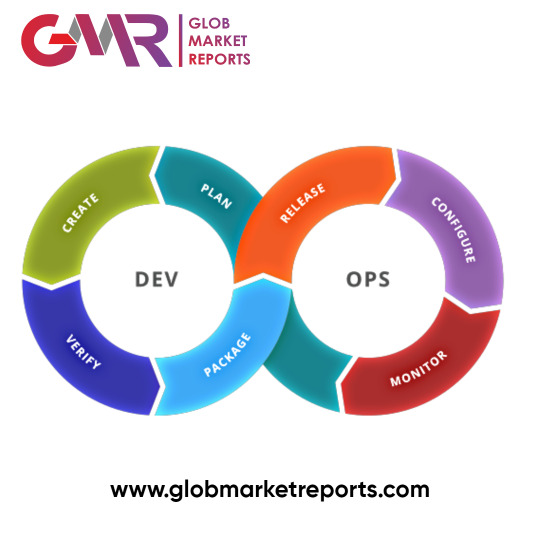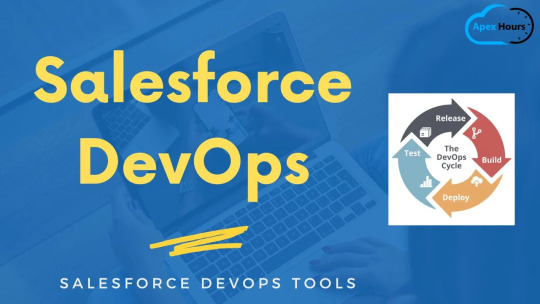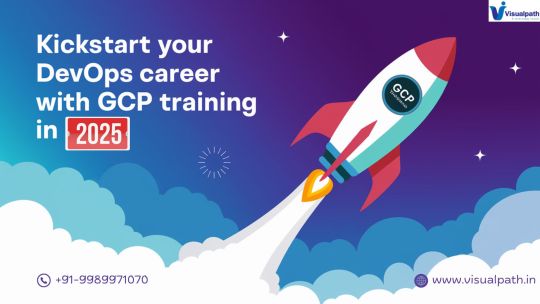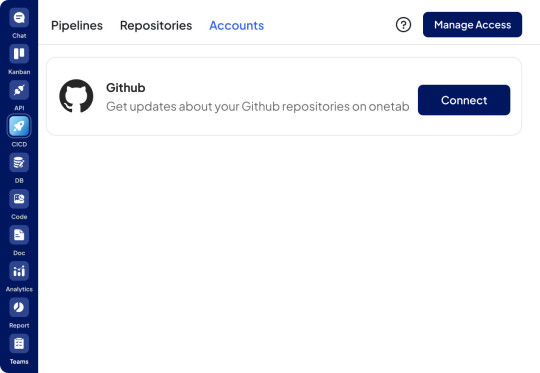#devops platform
Explore tagged Tumblr posts
Text
DevOps Platform Market is poised to achieve continuing growth During Forecast Period 2023-2030

The DevOps Platform Market refers to the market for software tools and platforms that enable organizations to streamline and automate their software development, testing, and deployment processes. DevOps is a methodology that combines software development and IT operations to improve the speed and quality of software delivery.
For Sample Report Click Here:-https://www.globmarketreports.com/request-sample/213658
The DevOps platform market includes a wide range of tools and services, such as version control systems, continuous integration/continuous delivery (CI/CD) tools, containerization platforms, cloud computing platforms, monitoring and analytics tools, and collaboration tools.
The market is driven by the increasing adoption of agile and DevOps methodologies by organizations to improve the speed and quality of software delivery, as well as the growing demand for cloud-based DevOps platforms that offer scalability, flexibility, and cost-effectiveness.
The major players in the DevOps platform market include Amazon Web Services (AWS), Microsoft, IBM, Google, Oracle, Atlassian, Red Hat, GitHub, GitLab, and Docker. These companies offer a wide range of tools and services that cater to the needs of different organizations, from small startups to large enterprises
0 notes
Text
In this episode, we explore DevOps as a Service Providers (DaaS) and how providers like Impressico Business Solutions help businesses streamline development, automate workflows, and enhance scalability. Learn how outsourcing DevOps can boost efficiency, reduce downtime, and drive digital transformation. Tune in to discover the future of agile software development!
0 notes
Text
Learn How We Can Assemble You an Extra Stream of Income!
If You're Someone That's Just Looking to Earn an Extra Stream Income in Digital Marketing Selling Digital Products . . Reach Out to Our Business Establishment to Learn About Our AI Automation System Setup Services! . . In addition, download ♦️FOR FREE♦️ our digital presentation guide which provides details on how you can assemble and turn your passion, hobbies and or work skills into your very own beginner friendly self-automated business sales system! . . Visit Business Resources Center: https://campsite.bio/microburstmedia . . This Info📚 Was brought to You by Micro Burst Media🏬 a Digital Solutions Company📊 . . Specializing In Digital Marketing, Content Advertisement and AI Automation System Setup . . Bringing you powerful media solutions for your business!
#saashow#floridanews#pompanobeachnews#communityengagement#communitynews#browardcountynews#sidehustleforbeginners2024#microburstmedia#saas development company#saas technology#saas platform#b2b saas#information technology#it services#it solutions#devops#software#generalpublicnews#sidehustleideasforanyone
0 notes
Text
Streamlining Development with DevOps Salesforce

DevOps Salesforce is a powerful approach that blends the best practices of DevOps with Salesforce development, enabling businesses to achieve faster, more reliable deployments. By integrating DevOps principles with Salesforce, organizations can optimize development workflows, reduce manual errors, and deliver high-quality applications at a faster pace.
Salesforce's inherent flexibility makes it a top choice for businesses looking to customize solutions for their unique needs. However, managing its development lifecycle can be complex. This is where DevOps Salesforce tools and methodologies come into play. They facilitate version control, automated testing, and continuous integration/continuous deployment (CI/CD) pipelines. This ensures that changes are deployed smoothly while minimizing disruptions to production environments.
Key tools in the DevOps Salesforce ecosystem, such as Copado, Gearset, and AutoRABIT, simplify tasks like metadata management, automated backups, and deployment tracking. These tools empower teams to work collaboratively, even in multi-developer environments, by providing visibility and control over changes in real-time.
Adopting DevOps Salesforce also enhances agility, a critical factor for businesses operating in dynamic markets. With shorter development cycles and automated testing, teams can respond quickly to user feedback and roll out updates with minimal downtime. This is especially beneficial for companies relying on Salesforce as their CRM platform to maintain seamless customer experiences.
In conclusion, DevOps Salesforce bridges the gap between development and operations teams, creating a cohesive environment for delivering scalable, reliable solutions. Whether you are scaling your Salesforce applications or streamlining workflows, embracing DevOps Salesforce methodologies is a smart move for sustained growth and innovation.By implementing DevOps Salesforce best practices, companies can unlock the full potential of their Salesforce ecosystem, ensuring competitive advantage and operational efficiency in today’s fast-paced digital landscape.
0 notes
Text
Mobile App Development
Empower your business with CSC: Canada Software Company (sister Company of The IT Cart)’s bespoke mobile apps, designed for optimal performance, speed, and user satisfaction on all devices. Dominate Search Engines with Proven SEO Innovative Web Design & Development Custom Software Development for Enhanced Efficiency For more details Mobile App Development Mississauga | The IT Cart Canada
#canada software company#canada software company mississauga#technologies#custom software development#crm software#erp software#education erp#umis#cmis#smis#mis#education erp umis#education erp cmis#education erp smis#education erp mis#platforms#technologies and platforms#frontend development#backend development#devops technologies#Custom Software For NDA Parking#Custom Software For Wholesale#Custom Software For Furniture Store#Education ERP MIS Software
0 notes
Text
GCP DevOps Online Training | GCP DevOps Training in Hyderabad

Kickstart Your DevOps Career with GCP Training in 2024
GCP DevOps Online Training offers an exciting opportunity for anyone eager to dive into the world of cloud computing. Google Cloud Platform (GCP) is rapidly becoming a preferred choice for businesses looking to streamline their operations, and mastering DevOps on this platform is a great way to boost your career. GCP DevOps Training in Hyderabad program is designed to help learners gain practical skills in deploying, automating, and managing applications and infrastructure on the cloud. With hands-on experience in tools like Kubernetes, Terraform, Cloud Build, and CI/CD pipelines, trainees will be well-equipped to tackle real-world challenges in cloud-based environments.
The flexibility of GCP DevOps Online Training makes it an ideal choice for professionals and beginners alike. Learners can access high-quality course materials at their own pace, making it easier to balance learning with work or other commitments. This online training is tailored to provide the best of both worlds: comprehensive theory paired with valuable practical experience. Whether you are looking to shift careers or enhance your existing skills, GCP DevOps Online Training ensures you gain the expertise needed to succeed in the competitive world of cloud technology.
Why GCP DevOps Training in Hyderabad Is a Great Choice
For those who prefer in-person learning, GCP DevOps Training in Hyderabad offers a hands-on experience in one of India’s top tech hubs. Hyderabad is home to numerous IT companies, including global giants like Google, Microsoft, and Amazon. As a result, the city is a great place to learn cloud computing and DevOps practices. GCP DevOps Training in Hyderabad provides a structured curriculum that bridges the gap between theoretical knowledge and practical application, with opportunities to work on live projects and real-world use cases.
In addition to expert-led sessions, GCP DevOps Training in Hyderabad allows students to network with industry professionals, giving them the opportunity to learn from those already working in cloud and DevOps roles. The proximity to major tech companies means that trainees can benefit from up-to-date knowledge of industry trends and best practices. Whether you are just starting out or are looking to upskill, the training program in Hyderabad can open doors to exciting job prospects and help you build a strong professional network.
Building a Strong Foundation with GCP DevOps Tools
A key feature of GCP DevOps Online Training or GCP DevOps Training in Hyderabad is its focus on building a solid foundation in both Google Cloud technologies and DevOps principles. Students will learn how to work with core GCP services like Compute Engine, Cloud Storage, Cloud Functions, and Kubernetes Engine, while also gaining hands-on experience in automating workflows and managing infrastructure as code. Understanding CI/CD principles is central to this training, as it helps students deploy and manage applications with speed, reliability, and minimal human intervention.
Moreover, GCP DevOps Training covers important topics such as monitoring, version control, and incident management, which are crucial in modern DevOps practices. The training program equips students with the knowledge to address real-time challenges, troubleshoot effectively, and optimize cloud resources for cost and performance efficiency. With this foundation, learners are ready to take on complex cloud projects and build scalable, high-performance applications using GCP.
Conclusion
In conclusion, GCP DevOps Online Training and GCP DevOps Training in Hyderabad provide valuable opportunities to learn the skills necessary to succeed in cloud computing. As companies increasingly turn to Google Cloud for their digital transformation, there is a rising demand for professionals proficient in DevOps practices. Whether you choose the flexibility of online training or the immersive experience in Hyderabad, enrolling in these programs will set you on the path to a successful career in cloud and DevOps technologies. Kickstart your journey today and stay ahead in this fast-evolving field!
Google Cloud is at the forefront of cloud technology, and with a solid understanding of GCP DevOps practices, you can contribute to developing scalable, efficient, and cost-effective solutions for businesses around the world. By honing your skills in the best DevOps tools and methodologies, you will not only enhance your career prospects but also join the ranks of highly skilled professionals who are shaping the future of cloud computing.
Don't wait—kickstart your DevOps journey with GCP today! With flexible training options available, now is the time to embrace the future of cloud and DevOps technologies.
Visualpath is the Leading and Best Institute for learning in Hyderabad. We provide GCP DevOps Certification Training. You will get the best course at an affordable cost.
Attend Free Demo
Call on – +91-9989971070
Blog: https://visualpathblogs.com/
What’s App: https://www.whatsapp.com/catalog/919989971070/
Visit: https://www.visualpath.in/online-gcp-devops-certification-training.html
#GCP DevOps Training#GCP DevOps Training in Hyderabad#GCP DevOps Online Training#DevOps GCP Online Training in Hyderabad#GCPDevOps Online Training Institute#GCP DevOps Certification Training#DevOps on Google Cloud Platform Online Training
0 notes
Text

Benefits Of DevOps Automation Tools For Seamless CX Upgrades
Customer experience (CX) is a rapidly evolving industry, with 80% of companies identifying DevOps as a key factor in scaling service quality. Integrating DevOps automation into CX operations brings substantial benefits, allowing teams to keep pace with customer demands, launch new features quickly, and resolve issues before they affect service. By minimizing manual intervention, DevOps automation tools improve productivity and enable CX teams to focus on creating seamless experiences across every customer interaction.
CX is inherently fast-paced and complex. Platforms require ongoing updates, precise configuration, and high scalability to meet dynamic customer needs. With automation, companies can unify operations, reduce deployment errors, and increase service uptime, setting the stage for a consistently high-quality customer journey. Below, we dive into the specific benefits DevOps automation can offer CX teams.
Why choose Blackchair Symphony for DevOps automation in CX?
At Blackchair, we know that successful DevOps automation in CX requires more than just implementing a standard set of tools. Each CX environment has specific demands, from CCaaS configuration to the need for rapid scalability and flawless performance. Our experts bring deep experience in selecting and integrating the ideal automation tools that fit your unique CX requirements, empowering your team to achieve reliable deployments, seamless scaling, and robust service reliability.
With comprehensive support across strategy, execution, and ongoing optimization, we handle the intricacies of automation so your team can prioritize delivering memorable, high-quality customer experiences at every touchpoint.
#DevOps Automation#CX Upgrades#CX migration#CCaaS environments#CX Automation#CX solutions#CCaaS platforms
0 notes
Text

Cloud Migration Experts For Seamless Digital Transformation
Discover how by transforming cloud transitions into growth opportunities, migration experts handle the complexity so you can focus on delivering exceptional customer experiences.
Cloud migration is no longer just an IT upgrade; it’s a strategic pivot that can redefine how businesses engage, grow, and succeed. Cloud migration experts specialize in making this transformation smooth, secure, and geared for lasting impact. From empowering flexibility in operations to unlocking new levels of scalability, the benefits are substantial—if done right.
For many organizations, the right approach to cloud migration goes beyond moving workloads; it requires strategic planning, foresight, and technical expertise. With years of experience in cloud-based transitions for diverse industries, migration experts guide businesses through every stage, ensuring not just a smooth migration but an enhanced foundation for customer engagement and innovation.
Why Blackchair’s cloud migration experts?
At Blackchair, we understand that cloud migration isn’t a “one-size-fits-all” solution. Every business has unique operational needs, customer expectations, and market pressures.
0 notes
Text

Benefits Of DevOps Automation Tools For Seamless CX Upgrades
Customer experience (CX) is a rapidly evolving industry, with 80% of companies identifying DevOps as a key factor in scaling service quality. Integrating DevOps automation into CX operations brings substantial benefits, allowing teams to keep pace with customer demands, launch new features quickly, and resolve issues before they affect service. By minimizing manual intervention, DevOps automation tools improve productivity and enable CX teams to focus on creating seamless experiences across every customer interaction.
CX is inherently fast-paced and complex. Platforms require ongoing updates, precise configuration, and high scalability to meet dynamic customer needs. With automation, companies can unify operations, reduce deployment errors, and increase service uptime, setting the stage for a consistently high-quality customer journey. Below, we dive into the specific benefits DevOps automation can offer CX teams.
Why choose Blackchair Symphony for DevOps automation in CX?
At Blackchair, we know that successful DevOps automation in CX requires more than just implementing a standard set of tools. Each CX environment has specific demands, from CCaaS configuration to the need for rapid scalability and flawless performance. Our experts bring deep experience in selecting and integrating the ideal automation tools that fit your unique CX requirements, empowering your team to achieve reliable deployments, seamless scaling, and robust service reliability.
With comprehensive support across strategy, execution, and ongoing optimization, we handle the intricacies of automation so your team can prioritize delivering memorable, high-quality customer experiences at every touchpoint.
0 notes
Text

Exploring the benefits and strategies for customer channel migration
Customer channel migration is the process of transitioning interactions from one communication channel to another, ensuring smoother customer journeys. This process allows businesses to better align with customer preferences and optimize CX across various touchpoints.
With 70% of customers expecting any agent they interact with to have the full context of their past interactions, omnichannel communications are now essential. By migrating to CCaaS, businesses can easily implement an omnichannel approach, providing seamless transitions between channels, such as from email to phone, while maintaining full visibility of the customer journey. This results in improved customer satisfaction and more efficient operations.
Seamlessly transitioning between channels isn’t just about saving time; it’s about delivering a consistent, quality experience. As businesses move into a CCaaS environment, optimizing channel ligration is key to success.
Accelerate your CCaaS migration with Clarity and elevate customer satisfaction
Clarity by Blackchair significantly improves the CCaaS migration process by automating critical steps and reducing the manual discovery burden. It accelerates CX migration by 25%, and shortens the discovery phase by 50%, allowing businesses to transition to CCaaS environments faster and more efficiently.
This faster transition means you will be able to automate channel migration processes within the CCaaS operating environment, ensuring that customer interactions are consistently handled across all channels—ultimately leading to improved customer satisfaction and operational efficiency.
0 notes
Text

Unlocking cloud migration benefits for customer-centric enterprises
For businesses at the forefront of digital transformation, the shift to the cloud is not just an IT upgrade—it’s a critical strategic move. The migration to cloud-based infrastructure enables businesses to re-architect their customer engagement strategies with increased agility, robust scalability, and an unprecedented capacity for innovation.
The real question isn’t why you should migrate to the cloud—it’s why not. Companies entrenched in legacy systems face more than operational inefficiencies; they risk falling behind the curve in delivering dynamic customer experiences. And for customer-centric enterprises, cloud migration benefits offer the competitive edge necessary to thrive in today’s hyper-connected marketplace.
Experience cloud migration benefits with Blackchair Clarity
If your business is ready to capitalize on the power of the cloud, it’s crucial to start with a well-thought-out migration strategy, tailored to customer experience transformation. Moving your contact center to the cloud requires a deep understanding of both your infrastructure and your customer engagement roadmap.
At Blackchair, we specialize in guiding enterprises through seamless CCaaS migration, ensuring that you transition to the cloud efficiently and unlock the full value of cloud-native customer experience platforms.
0 notes
Text
Explore how Azure DevOps Services streamline software development, enhance collaboration, and boost productivity. Learn how Impressico Business Solutions can help you implement and optimize Azure DevOps for seamless project management, faster delivery, and improved software quality. Transform your development process today!
#Microsoft Azure Cloud Services#Azure DevOps Services#Azure Cloud Computing#Cloud Computing Platform
0 notes
Text
Got an Online Business You Wish to Market but Lack the Skills and Time to Do it?
Then Acquire Our Broadcasting System Setup Services. To Learn More Please Comment or Message Us for more Details.
This Info📚 Was brought to You by @MicroBurstMedia a Digital Solutions Company 🏢

#b2b saas#saashow#saas technology#saas platform#saas development company#information technology#salesforce#software#devops#microburstmedia#pompanobeachnews#browardcountynews#communityengagement#communitynews#sidehustleforbeginners2024#generalpublicnews#floridanews#sidehustleideasforanyone
0 notes
Text

Streamline development with OneTab’s AI CI/CD platform. Leverage powerful CI/CD tools, dashboards, and continuous integration testing for iOS. Boost DevOps efficiency with cutting-edge CI/CD pipeline tools and software development solutions.
#ai-cicd#ci-cd-dashboard#cicd-ai#continuous-integration-tools-ios#ci/cd-tools#cicd-platform#Continuous-Integration-Testing-Tools#Devops-Ci-Cd#Cicd-Pipeline-Tools#Ci-Cd-Platform#Ci-Cd-Software-Development
0 notes
Text
Custom Software Development Mississauga
Transform your business with expert custom software development in Mississauga. Solve inefficiencies, boost scalability, and cut costs with our tailored solutions. Book your free consultation now!
Custom Development Experts in Mississauga
Discover why we are leaders among software companies in Mississauga: Custom Development Experts dedicated to transforming your business vision into reality. Our tailored solutions leverage cutting-edge technology and a team of seasoned software developers to ensure your project’s success.
For more details visit us at Custom Software Development Mississauga | Canada Software Company
#canada software company#canada software company mississauga#technologies#custom software development#crm software#erp software#education erp#umis#cmis#smis#mis#education erp umis#education erp cmis#education erp smis#education erp mis#platforms#technologies and platforms#frontend development#backend development#devops technologies#Custom Software For NDA Parking#Custom Software For Wholesale#Custom Software For Furniture Store#Education ERP MIS Software
0 notes
Text
0 notes